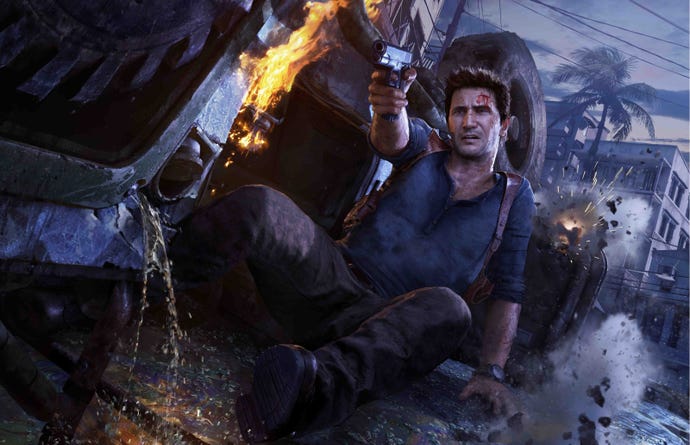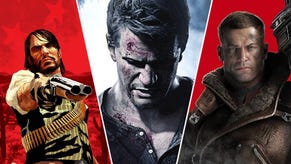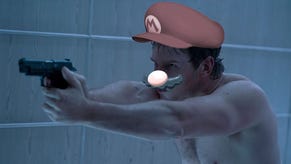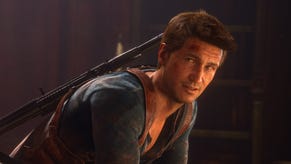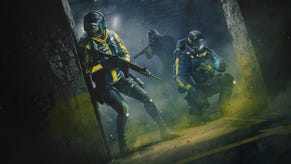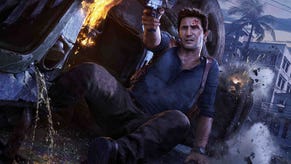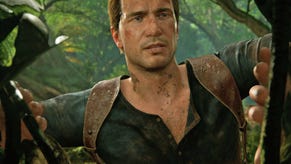Uncharted 4 review: not as groundbreaking as 2, but the best in the series
Naughty Dog's final Uncharted game is a glorious swansong for Nathan Drake.
"In Uncharted 4 the influence of The Last of Us is constantly felt; tonally the game is darker than the others in a subtle way, something enhanced by a more realist bent on the artwork and a more restrained score."
I've always had an on-off relationship with Uncharted. I remember picking up the first game along with my PS3 and feeling that buried deep there was brilliance. I loved the concept of the game, but was frustrated with its pacing, its shooting, and the standard-issue PS3 launch sixaxis gimmicks. All this meant that despite ridiculously impressive showings at trade shows I was cautious about its sequel. Caution that was ultimately blown clean out of the water.
Uncharted 2 was one of the best games of the year and remains a genre-defining monolith. The third game felt to me like treading water; it repeated many of Uncharted 2's impressive tricks, except two years later they were significantly less impressive. And the plot, so tight in the second game, seemed to meander.
Now we reach Uncharted 4: A Thief's End, which Naughty Dog has frequently said will be Nathan Drake's swansong - at least under their steerage. It's a relief to report that Drake's fourth console adventure is significantly better than his first and third - but where exactly it stands compared to the groundbreaking second game is debatable.
Now comes the difficult task of explaining why - single-player only and without spoilers, for the record.
I recently reviewed Dark Souls 3 here on VG247, and in a strange way I feel that it and Uncharted 4 are similar. Both are games from a series that have a clearly defining moment - in both instances the second game (by which I mean the original Dark Souls) and from developers who took a similar-but-different detour in the form of Bloodborne and The Last of Us before returning to that franchise. The result in both instances is an incredibly polished game that takes cues from both that defining series entry and the detour game. And in both instances I'd describe it as on paper the best entry in the series, though just as with Dark Souls 1 vs 3, Uncharted fans are likely to end up debating this endlessly.
In Uncharted 4 the influence of The Last of Us is constantly felt; tonally the game is darker than the others in a subtle way, something enhanced by a more realist bent on the artwork and a more restrained score. The score feels like a great example for where this game goes tonally in general; previous Uncharted composer Greg Edmonson is replaced by Henry Jackman, mostly recently known for his scores to the last two Captain America movies. The score has less bombast to it and shows more restraint, and Nate's Theme, the most memorable Uncharted track, is woven into the score but always with subtlety. It never blasts through in a hefty Indiana Jones style as it frequently used to. That's indicative of the rest of the game, but it's all handled very well. The beats you love are there, from the dry humour to the major action set-pieces, but they're somehow handled in a cooler, calmer manner, which feels a lot more like The Last of Us.
That switch passes over to gameplay and works just as well there, too. Where previous Uncharted games often essentially put you in a shooting gallery where you'd simply push forwards, major combat encounters in Uncharted 4 generally take place in arena-like zones that are usually a sort of circular shape. Littered throughout are opportunities for traversal moves, which then links into the title's big upgrade in terms of stealth mechanics.
Enemies can be taken out stealthily, but if they spot you it's no longer all-out-war until they're dead. If you're careful you can dance around the combat zone and lose them, dropping you back into stealth-mode, Metal Gear style. In one combat scenario I stealthed my way around the arena to the exit at the other side and simply avoided it almost entirely. My favourite encounter in the game took place in a semi-submerged town where I kept taking out a few guys and getting spotted before diving beneath the water to lose the enemies in order to sneak up on them from a different angle.
A more open-ended approach to this style of third-person action also emphasizes the strengths of Uncharted's traversal mechanics. Clambering and swinging with the new grappling hook has a whole new meaning when you're using it in combat compared to when you're running from something or trying to reach some impressive far-off landmark. And when stuff does go south Uncharted 4 is also best title in the series as far as shooting goes, but as with previous entries there's still a swimminess to aiming that never quite clicks.
Openness of combat encounters does mean that the game seems a little lighter on the famous Uncharted set-pieces, perhaps because Naughty Dog has realized these sequences with little scope for player control have had diminishing returns over the years. Everything is more open and more of an actual game. While that might result in less of those impressive 'oh s**t' moments that defined the previous titles, the game is better for it. The set pieces that remain are meaningful, and what replaces those lost is even more satisfying. It's not just about the open combat, but openness in general: one chapter drops you into seemingly sprawling plains of Madagascar in a jeep and simply says 'go'. You can drive and explore, and there's plenty of optional bits to do and see along the way.
The game is good at that, too: There's a constant stream of small new gameplay wrinkles introduced over its duration. The grappling hook is introduced early and is an important and fun staple, but several other little additions are gradually introduced; right up to its finale the game presents little surprises in this manner. These are especially welcome as in other areas things can get surprisingly stale. There's only so many times you can boost your partner up or find a box to push against a wall before you get tired of it - the same issue The Last of Us faced with constant ladder moving and the like.
So, with minor caveats, it plays great. Check. Visually it shouldn't come as a surprise to learn that this game is a ridiculous powerhouse, too. I don't see much point in waxing lyrical about this as you can go watch a trailer to see for yourself, but just trust me when I say it looks bloody great. It's the best looking console release to date, hands-down.
"Everything is more open and more of an actual game. While that might result in less of those impressive ‘oh s**t’ moments that defined the previous titles, Uncharted 4 is better for it."
What I'm far more interested in talking about is the narrative. While it's not as immediately moving as The Last of Us I do think this is the tightest story Naughty Dog has produced, if a little slow in the first act. It's generally a simpler story: there's rarely more than three people involved on Drake's side, while there are two absolutely clear antagonists. It's quite a change from the double-crosses and larger supporting cast of Uncharted 3, but that lends the story a level of focus that makes it shine. My first thought, in fact, is that this is the Uncharted that would most easily translate to cinema, not the first, which is currently being adapted.
The interactions between the characters are incredibly well done, and again the game offers a little more choice. There's optional dialogue triggered through talking to your partner during gameplay and alternative dialogue via some rare Bioware-style conversation tree stuff. Drake feels more of a real person than a hero stereotype now, and his relationship with Elena is so well-pitched it's actually a little astonishing.
Every single performance feels to be on-point, and special recognition in particular should go to Troy Baker - aka Joel from The Last of Us - in his new and very different role as Drake's brother. Also hugely impressive is Laura Bailey, whose casting as Nadine caused some controversy because Nadine is black and Laura is white. Laura's better-known for more anime roles like Final Fantasy XIII's unbearable Serah, Presona's cutesy Rise and Chun-Li, but she's unrecognisable and transformed here. She is absolutely well cast in this role, colour be damned.
A large part of Uncharted 4's narrative that made me nervous was the mere existence of Sam Drake and the potential backstory that could come along with introducing a long-lost brother three stories deep. It's deftly-handled and well-justified, and I actually feel Nathan's character has been enhanced and not damaged by the information surfaced here. I'm also impressed with the restraint shown by the game in its back half, where it dodges some things I feel were mistakes in previous games.
I've written a lot, but when push comes to shove the best possible thing I can say about Uncharted 4 is that it's the type of video game I'd show to a non-gaming cinema lover to show them how the medium can do 'proper' storytelling. One early sequence depicting Nate and Elena's life at home is stuck in my mind, not because of a gameplay gimmick, but because of how well-realized it is. And that's a theme throughout this game.
Uncharted 4 absolutely isn't perfect. The gunplay still leaves something to be desired (though it's easy to do less shooting now) and I think it might actually be a couple of chapters too long, but even with all those things considered I'd absolutely call it the best Uncharted game. It's not as groundbreaking as the second, and that's going to cause some debate among fans, but damn if this game isn't special. As such, and I doubt I need to say it, but it's obviously worth your time.
Uncharted 4: A Thief's End is released May 10. Review based on final code supplied by Sony.
